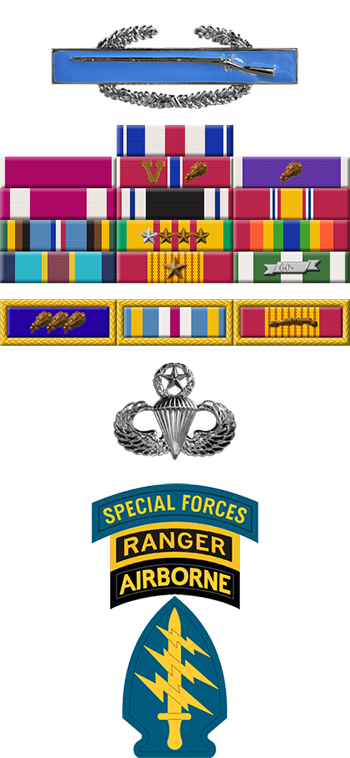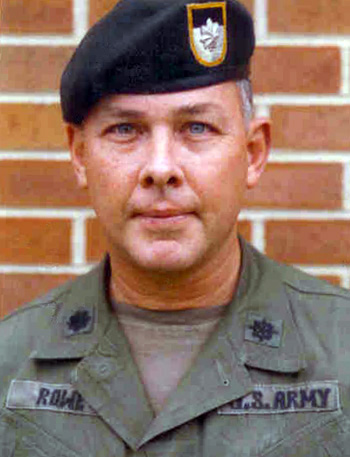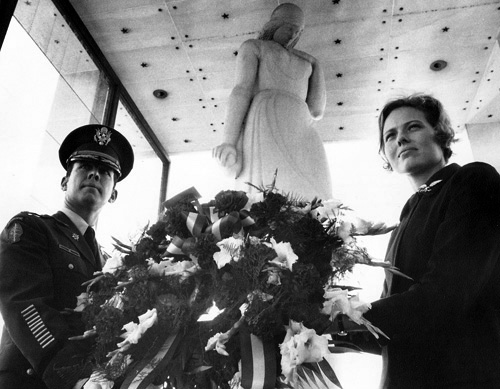
|
James N. "Nick" Rowe |
 |
|||
| Rank, Service | ||||
Colonel O-6, U.S. Army |
||||
| Veteran of: | ||||
|
||||
| Tribute: | ||||
Nick Rowe was born on February 8, 1938, in McAllen, Texas. He entered the U.S. Military Academy at West Point in June 1956 and graduated with a commission as a 2LT of Artillery on June 8, 1960. Rowe was assigned to the 82nd Airborne Division at Fort Bragg, North Carolina, from August 1960 to May 1961, and during this time he completed Airborne School, Ranger School, and the Artillery Officer Basic Course. Lt Rowe next served with the 7th Special Forces Group and then the 5th Special Forces Group (SFG) of 1st Special Forces at Fort Bragg from May 1961 to July 1963. During this time he completed Language School at the Presidio of Monterey, California. Rowe went on TDY with the 5th SFG to the Republic of Vietnam in July 1963, and was captured and taken as a Prisoner of War by the Viet Cong on October 29, 1963. After spending 1,891 days in captivity, Maj Rowe escaped on December 31, 1968, and made his way to friendly forces. He was briefly hospitalized to recover from his injuries at Fort Sam Houston, Texas, and then served as an instructor with the Army Field Artillery School at Fort Sill, Oklahoma, from June 1969 to September 1970. Rowe then went into Army Intelligence, serving at Fort Holabird, Maryland, from September 1970 to June 1971, and then with the Defense Intelligence Agency in Washington, D.C., from June 1971 until he left active duty on February 1, 1974. Col Rowe returned to active duty on March 12, 1981, and served as Chief of the Survival Evasion Resistance and Escape (SERE) School at Fort Bragg, North Carolina, until May 1985, when he was made Commander of the First Special Warfare Training Battalion at the John F. Kennedy Special Warfare Center, also at Fort Bragg. In May 1988 Col Rowe was assigned as the Chief of the Army Division of the Joint U.S. Military Advisory Group in the Philippines. He was assassinated by Communist guerrilas in Quezon City, a suburb of Manila, on April 21, 1989. Nick Rowe was buried at Arlington National Cemetery on May 2, 1989. |
||||
|
||||


